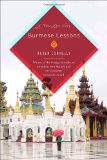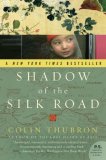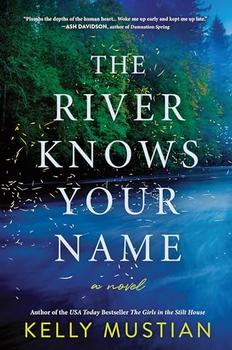Summary | Excerpt | Reviews | Beyond the book | Read-Alikes | Genres & Themes | Author Bio

A brave and revelatory reconnaissance of modern Burma, one of the world's grimmest and most shuttered police states, using as its compass the life and work of George Orwell, the man many in Burma call simply "the prophet"
A brave and revelatory reconnaissance of modern Burma, one of the
world's grimmest and most shuttered police states, using as its
compass the life and work of George Orwell, the man many in Burma call
simply "the prophet"
Over the years the American writer Emma Larkin has spent traveling in
Burma, she's come to know all too well the many ways this brutal
police state can be described as "Orwellian." The life of the mind
exists in a state of siege in Burma, and it long has. But Burma's
connection to George Orwell is not merely metaphorical; it is much
deeper and more real. Orwell's mother was born in Burma, at the height
of the British raj, and Orwell was fundamentally shaped by his
experiences in Burma as a young man working for the British Imperial
Police. When Orwell died, the novel-in-progress on his desk was set in
Burma. It is the place George Orwell's work holds in Burma today,
however, that most struck Emma Larkin. She was frequently told by
Burmese acquaintances that Orwell did not write one book about their
country - his first novel, Burmese Days - but in fact he wrote three, the "trilogy" that included
Animal Farm and Nineteen
Eighty-Four. When Larkin quietly asked one Burmese
intellectual if he knew the work of George Orwell, he stared blankly
for a moment and then said, "Ah, you mean the prophet!"
In one of the most intrepid political travelogues in recent memory,
Emma Larkin tells of the year she spent traveling through Burma using
the life and work of George Orwell as her compass. Going from Mandalay
and Rangoon to poor delta backwaters and up to the old hill-station
towns in the mountains of Burma's far north, Larkin visits the places
where Orwell worked and lived, and the places his books live still.
She brings to vivid life a country and a people cut off from the rest
of the world, and from one another, by the ruling military junta and
its vast network of spies and informers. Using Orwell enables her to
show, effortlessly, the weight of the colonial experience on Burma
today, the ghosts of which are invisible and everywhere. More
important, she finds that the path she charts leads her to the people
who have found ways to somehow resist the soul-crushing effects of
life in this most cruel police state. And George Orwell's moral
clarity, hatred of injustice, and keen powers of observation serve as
the author's compass in another sense too: they are qualities she
shares and they suffuse her book - the keenest and finest reckoning
with life in this police state that has yet been written.
Finding George Orwell takes us where few readers will probably ever have the chance to travel - far into the heart of this deeply troubled country to meet its many fascinating and resilient people. Highly recommended...continued
Full Review
(273 words)
This review is available to non-members for a limited time. For full access,
become a member today.
(Reviewed by BookBrowse Review Team).
Burma - now Myanmar - is located in South East Asia, west of Thailand, and borders Thailand, China, India, Laos and the Indian Ocean. It's total land area is about the size of Texas.
During much of the 19th Century and early 20th century, it was administered as a province of India by the British. In 1948 it attained independence and is now ruled by a military junta who have refused to give up control despite a landslide win for the National League for Democracy in 1990 (since which time the party's leader has been under almost constant arrest). In 1989 the junta announced that the country's name had been changed to Myanmar, but this not approved by any legislative body (because there isn't one!)
Burma has a wealth of natural ...
This "beyond the book" feature is available to non-members for a limited time. Join today for full access.

If you liked Finding George Orwell in Burma, try these:

by Karen Connelly
Published 2010
Orange Prize–winner Karen Connelly’s compelling memoir about her journey to Burma, where she fell in love with a leader of the Burmese rebel army.

by Colin Thubron
Published 2008
Shadow of the Silk Road records a journey along the greatest land route on earth: Out of the heart of China into the mountains of Central Asia, across northern Afghanistan and the plains of Iran and into Kurdish Turkey.



Great literature cannot grow from a neglected or impoverished soil...
Click Here to find out who said this, as well as discovering other famous literary quotes!